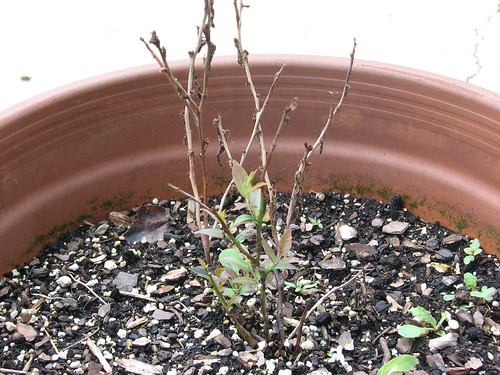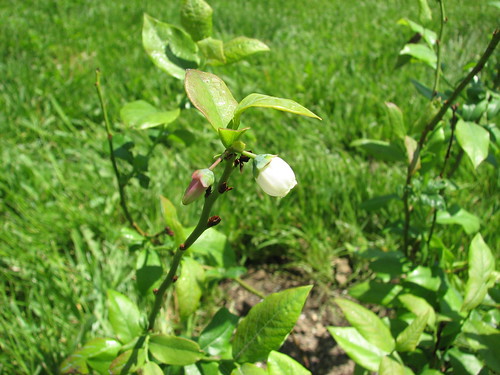I find many of the things mentioned here true about myself. I hardly ever take time to put very many thoughts together anymore. :( There are many snippets and fragments of ideas running around in my head. I find it a chore to put them together into a blog post. This article presents a challenge. Will I work on it or not?
Googling Ourselves to Death
by Jason Stellman
I distinctly remember the period after I first began to embrace Reformed theology while a pastor with Calvary Chapel in Europe. The Bible had come alive to me as a result of having discovered that “the gospel” was not just the “Roman Road” down which we take unbelievers in order to get them to “pray the prayer” and accept Jesus into their hearts, but it was so much more. The gospel as I came to realize, refers not just to our evangelistic tactics and formulae, but to all of the doctrines of grace that shape our lives as Christians: election, regeneration, saving faith, justification, sanctification, and glorification. In a word, I was overwhelmed with the new insights I was gaining. For this reason I would sit and study God’s Word for hours without interruption, often pursuing a biblical or doctrinal question as far as I possibly could, and exploring it as deeply as I possibly could, until I was satisfied that I understood the matter satisfactorily.
But now? Now, things have changed.
I still have the same love for God’s Word as I always have (and I hope it’s even greater than it used to be), but what has changed is the ability to study it without distractions. The reason for this, I think, has to do with the all-pervasive role that the Internet has come to play in our lives as Americans. We are constantly connected and thus susceptible to incessant email notifications, Facebook friend-requests, and inane texts and tweets. If I may wax somewhat self-incriminating, after finishing my last paragraph and beginning this one, I took a break to check the score of the Lakers game (they’re losing). My point is that the context in which one can sustain a single uninterrupted thought is much rarer and harder to create than it was only ten years ago.
In his book The Shallows: What the Internet is Doing to our Brains, Nicholas Carr argues that the way we often evaluate the effects of the Internet is by considering its content, but ignoring its nature as a medium. It is the way that information is being relayed and processed that stands to harm us more greatly than the information itself. Carr quotes Wired’s Clive Thompson, “The perfect recall of [Google’s] silicon memory can be an enormous boon to thinking,” and then writes:
The boons are real. But they come at a price. Media aren’t just channels of information. They supply the stuff of thought, but they also shape the process of thought. And what the Net seems to be doing is chipping away my capacity for concentration and contemplation. Whether I’m online or not, my mind now expects to take information the way the Net distributes it: in a swiftly moving stream of particles. Once I was a scuba diver in a sea of words. Now I zip along the surface like a guy on a Jet Ski.
As Neil Postman and Marshall McLuhan have argued in times past, the message is important, but so is the medium, and the medium of the Internet and other forms of modern technology may indeed make things quicker and easier (and in case you were wondering, yes, I did a Google search to find Carr’s quote above rather than type it in by hand from the book sitting here on my desk), but at what cost to our brains, our minds, our study habits?
There’s something unique about Christian disciplines — and especially the study of Scripture — that renders them altogether distinct from other pursuits. And what’s more, those things that tend toward growth in the faith, whether public means of grace or private devotions, can even be immune from the supposed aid and ease that technology may offer in other arenas. For example, a graduate student may truly benefit from being able to access mountains of information at the click of a mouse, but I am not convinced that the minister will equally benefit from the same. Unlike in other fields, the pastor who labors over the Greek or Hebrew text of Scripture, or the theologian who forces himself to dig deeply into the writings of some saint or early father, actually undergoes an inward and spiritual change as a result of these disciplined pursuits, and the depth of that change may very well be related to just how painstaking his research really was.
In a word, there are just no shortcuts to true piety. The more we attempt to achieve our spiritual goals quickly and painlessly by circumventing the old ways trod by those who have gone before us — such as time spent in prayer and in study of God’s Word — the more shallow our spiritual lives will become. As inconvenient and time-consuming as our spiritual disciplines may be when pursued without the aids of modern technology, we can rest assured that the effort will be more than worthwhile.
It is easy to lament the ill-effects of texting and tweeting upon punctuation, spelling, and the English language as a whole, but have we stopped to consider that such grammatical shortcuts and shortcomings may end up serving as a metaphor for twentyfirst century Christian piety? What may be bad for the secular goose is much worse for the sacred gander, and lazily abbreviated text-messaging can become a steppingstone for a lazy and abbreviated prayer life.
From Ligonier Ministries and R.C. Sproul. © Tabletalk magazine. Website: www.ligonier.org/tabletalk. Email: tabletalk@ligonier.org. Toll free: 1-800-435-4343.


























